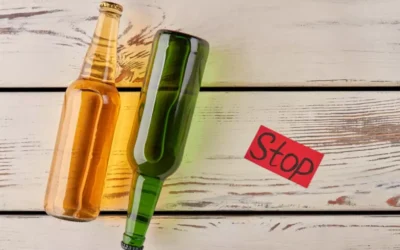Content
Unhealthy alcohol use includes any alcohol use that puts your health or safety at risk or causes other alcohol-related problems. It also includes binge drinking — a pattern of drinking where a male has five or more drinks within two hours or a female has at least four drinks within two hours. Many people remain addicted to alcohol because they don’t want to face the withdrawal symptoms of drinking cessation.
“The heritability of alcohol use disorder[…]nd adoption studies.” Psychological Medicine, Cambridge University Press, August 29, 2014. Alcohol is addictive because of the way that it interacts with the brain. It actually causes chemical changes that make someone want to use alcohol more with each drink, creating a cycle that makes it hard to live without alcohol. The idea that someone is suffering from ‘alcoholism’ (and is ‘once an alcoholic, always an alcoholic’) has been enshrined since the 1930s in the work of Alcoholics Anonymous.
How Addictive Is Alcohol?
Alcohol addiction is typically considered present when someone is unable to stop using alcohol, even though it has created negative effects. Because the physical effects of alcohol addiction are chemical changes in the brain, some people fail to realize that it can be considered a disease. It does, however, actually change the structure and function of your brain, ultimately creating the addiction. Constant stimulation of dopamine, as with consistent alcohol abuse, actually causes an overall decrease in dopamine. Tolerance builds with increased drinking, but this inability to feel pleasure without dopamine is what actually causes increased drinking.
In order for treatment to work, the person with an alcohol addiction must want to get sober. These complications are reasons why it’s important to treat alcohol addiction early. Nearly all risks involved with alcohol addiction may be avoidable or treatable, with successful long-term recovery. Regardless of how the addiction looks, someone typically has an alcohol addiction if they heavily rely on drinking and can’t stay sober for an extended period of time. People drink because their friends, coworkers, and family are drinking. Therein lies the problem; Drinking produces a sort of “high” that we begin craving.
Risk Factors and Personal Vulnerability to Alcoholism
Behavioral therapies can help people develop skills to avoid and overcome triggers, such as stress, that might lead to drinking. Medications also can help deter drinking during times when individuals may be at greater risk of a return to drinking (e.g., divorce, death of a family member). Using alcohol during adolescence (from preteens to mid-20s) may affect brain development, making https://ecosoberhouse.com/ it more likely that they will be diagnosed with AUD later in life. However, most people with AUD—no matter their age or the severity of their alcohol problems—can benefit from treatment with behavioral health therapies, medications, or both. People prone to alcoholism may have a genetic predisposition, mental health issues, or be in an environment that encourages drinking.
There are millions of people out there who suffer from alcohol use disorder; they can’t control their drinking and their lives are ultimately destroyed by alcohol. The Recovery Village Kansas City is an evidence-based alcohol addiction rehab center in Raytown, Missouri, just outside Kansas City. We believe everyone can recover from addiction, and we take a holistic approach to treatment, addressing all areas of life impacted by addiction.
Risk factors
In the UK, most people using cannabis combine it with tobacco to smoke. The risks to health as a result of using tobacco are well documented and include a range of cancers as well as heart disease and stroke. Although there are restrictions on its use, these have been loosened in recent years. As with cannabis, there are risks to mental health as a consequence of using alcohol. Everyone why is alcohol addicting who develops an alcohol addiction will ultimately have a different journey, and the time it takes to develop an alcohol addiction varies significantly based on multiple different factors. Additionally, many people who develop an alcohol addiction may not realize they are addicted until something suddenly happens that causes them to realize how much they need or want it.









